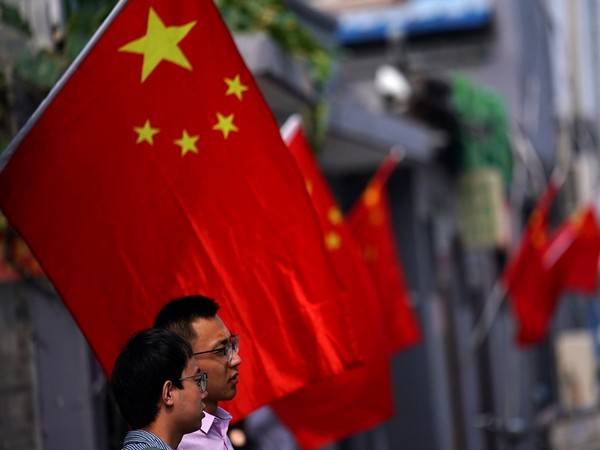
Concerns arise among experts regarding censorship, propaganda, and privacy concerns associated with TikTok. The utilisation of TikTok by the Chinese government could potentially undermine global free speech, democracy, and human rights….reports Asian Lite News
The recent introduction of a new ad library by TikTok, showcasing advertisements from Chinese state propaganda sources to millions of Europeans over recent months, has raised significant alarm within the international community.
According to a new ad library published by the company, the promotional advertisements include topics like defenses of Chinese, Covid-19 lockdowns, adorable cats playing on the Great Wall of China and recast the country’s Xinjiang region as a spectacular tourist destination.
Currently, TikTok has over one billion active users worldwide, with over 600 million of those users located in China.
TikTok’s rapid growth has been driven by its popularity among young people. In China, over 80 per cent of TikTok users are under the age of 30. TikTok is also popular among young people in other countries, such as the United States and Indonesia in particular. China decided to use it for promotion of its policies, brand image and establish itself as a major economic power within the country and outside.
However, it has focused its attention on economic development plans, foreign relations, and attack on China’s adversaries, such as the United States and Japan.

The Xi government runs advertisements that control the narrative about China, such as those that portray China as a peaceful and prosperous country. The government also runs advertisements that gather data on. Chinese citizens, such as those that ask users to provide their personal information or to take surveys.
According to Forbes magazine, an analysis of the ad library showed that more than 1,000 ads from Chinese state media outlets like People’s Daily and CGTN have run on the platform since October 2022.
These advertisements have been seen by millions of users across Austria, Belgium, the Czech Republic, Germany, Greece, Hungary, Italy, Ireland, the Netherlands, Poland, and the United Kingdom.
The ad library does not yet display data on ads presented to users in the United States, Canada, Australia, and other countries outside of Europe.
TikTok has essentially focused on China’s economy, technology and cultural heritage besides Xinjiang. The US government has branded the Chinese government’s campaign of mass repression, imprisonment and “reeducation” as a genocide.

One advertisement featured a man doing a traditional dance under the caption “Xinjiang is a good place!” while another video showed a CGTN host visiting an elementary school in Xinjiang.
Advertisements also tout tours of the region and the culture of its mostly Muslim Uyghur population. An FAQ page for the new ad library says: “TikTok does not show political or election ads on the platform.
So you will not be able to find ads of political nature in the Commercial Content Library.” TikTok’s ad policies prohibit advertising about social issues, elections and politics, though they note that “government entities may be eligible to advertise if working with a TikTok Sales Representative.”
But most advertisements appear to be more overtly political in topic and tone. For instance, one advertisement featured an academic criticizing U.S. and European resistance to the Chinese international development project the Belt & Road Initiative in December 2022.

Another advertisement featured a video from a vlogger who has accused Western media of lying about the Chinese government’s human rights abuses. According to the ad library, it was recently running on TikTok.
Experts said that they are worried about censorship, propaganda, and privacy issues. The Chinese government’s use of TikTok can have a negative impact on free speech, democracy, and human rights around the world.
Experts have also shown concerns for China using TikTok for spreading disinformation and propaganda outside the country.
For example, in 2021, TikTok was accused of running ads that promoted the Chinese government’s Belt and Road Initiative, a controversial infrastructure project that has been criticized for its environmental impact and human rights abuses.
TikTok has denied these allegations, but the concerns remain. The non availability of information on Hong Kong protests or treatment of Uighur Muslims on TikTok is another reason for concern. The fear is that TikTok might be used as a tool for shaping narratives in favor of the Chinese government’s viewpoints.
Though TikTok has repeatedly claimed to be operating independently from the Chinese government and adhering to the laws and regulations of each country it operates in, serious doubts have arisen after Tiktok started running Chinese government advertisements.
When it comes to Chinese government advertisements on TikTok, the situation becomes more intricate. It is plausible that the Chinese government utilizes the platform to convey positive messages about its policies, achievements, and culture. Such advertisements could range from promoting tourism in China to highlighting economic development or environmental initiatives.
However, due to TikTok’s global reach, any government advertisement could be subject to scrutiny and skepticism, raising questions about the authenticity and transparency of the information presented.
The effectiveness of TikTok as a platform for government advertisements hinges on how well the content aligns with the expectations and interests of the user base. Users typically flock to TikTok for entertaining and creative content, and government advertisements that fail to capture the essence of the platform may struggle to resonate with the audience. Striking the right balance between promotion and entertainment is crucial for any advertiser on TikTok, including governments.
ALSO READ: Brahmaputra damming by China spells disaster for Bangladesh
ALSO READ: SPACE RACE: China Overtakes US In Tactically Responsive Space Launch


